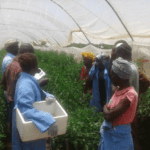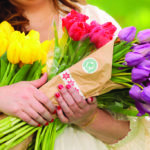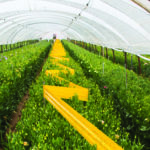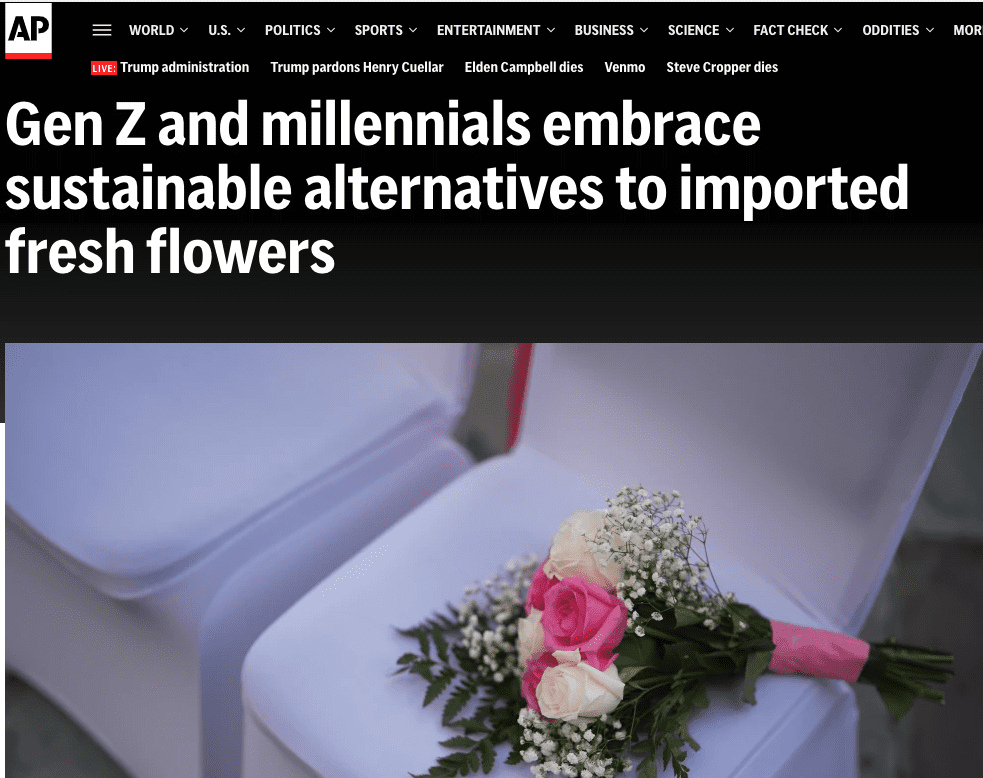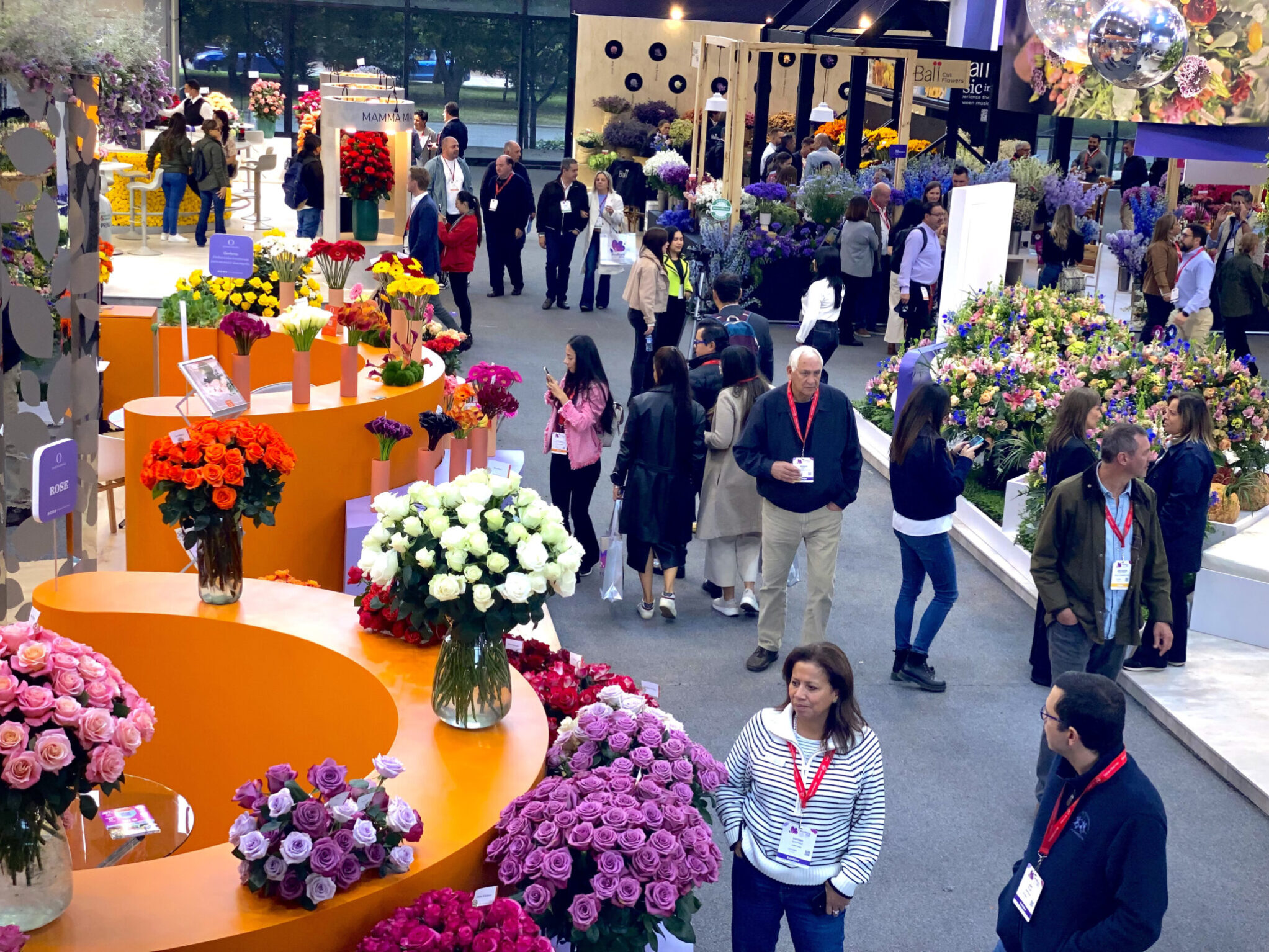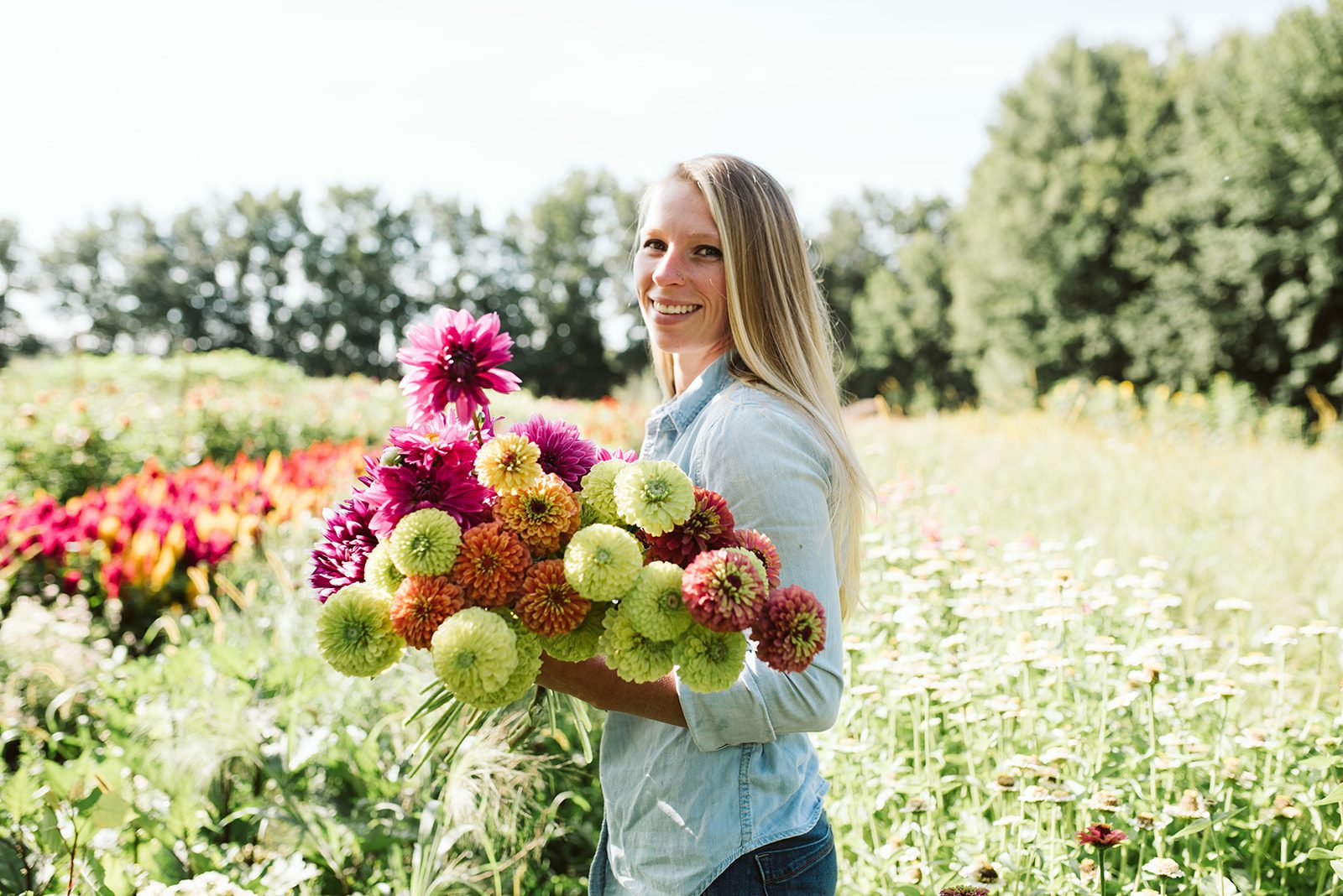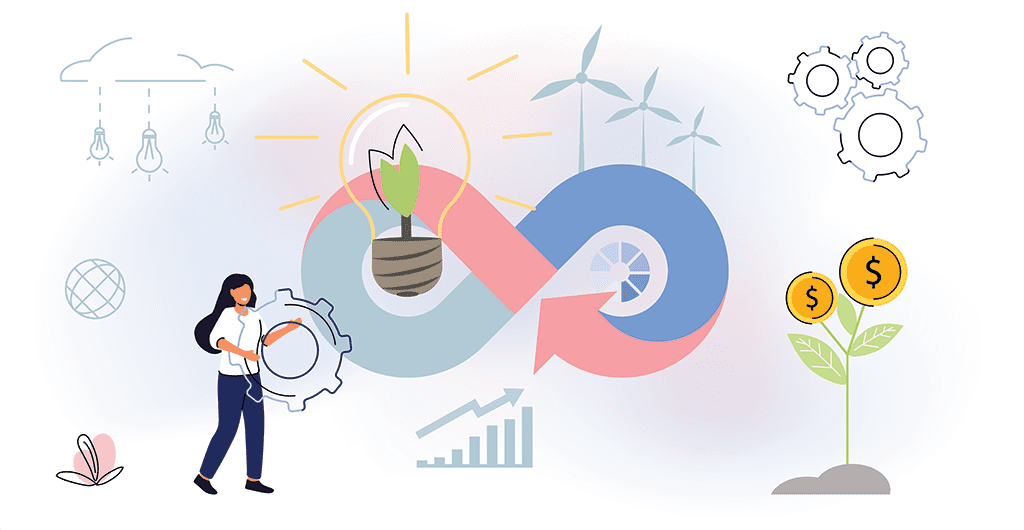
Adopting sustainable practices is not only good for the environment, but it also presents marketing opportunities, Jeroen Oudheusden, executive officer of the Floriculture Sustainability Initiative, said during an SAF webinar. The webinar is available to watch on demand in SAF’s learning hub, Career Connection.
For an industry that markets nature, protecting the natural world is both a responsibility and an opportunity.
That was the message Jeroen Oudheusden, executive officer of the Floriculture Sustainability Initiative (FSI), delivered July 14 during the Society of American Florists’ webinar, “Sustainability: Have We Reached a Tipping Point?”
“We have climate change to battle,” Oudheusden said. “We have to work in our sector to become sustainable in a way that … a flower is always connected to something from nature and not at the expense of nature.”
FSI is an independent nonprofit that brings together members of the international floriculture industry. The group promotes transparency, responsible production and trade, positive impact, and improvement in its members, who are from every link of the global floriculture supply chain.
“It’s about continuous improvement,” Oudheusden said. “We know that we can do better. We need to do it together.”
Not only does it have a positive impact on the planet, but it’s also a great marketing tool, he said.
Marketing the Cause
Adopting sustainable practices is a powerful marketing tool that can drive revenue, attract talent and counter bad publicity.
FSI has found that millennials are loyal to brands that embrace sustainability and other environmental or social justice causes.
Sustainability can also help attract younger generations of workers to the floral industry. Young people with college degrees are more likely to join the sector if they perceive it as environmentally progressive and promoting sustainability, Oudheusden said.
And while flowers are the “most affordable luxury” and promote healthy living, “it’s not always rosy,” Oudheusden said. He pointed to several Greenpeace campaigns that smeared the floral industry ahead of major floral holidays for the use of pesticides.
Although they may be rare incidents, these are the kind of stories that influence the opinion of people,” Oudheusden said.
Sustainable Practices
Businesses at all levels of the floral industry are adopting sustainable practices for several reasons, from legislation requiring environmentally responsible growing and shipping practices to consumer interest and market standards.
Oudheusden acknowledged that creating a sustainable floral industry can seem like an insurmountable challenge but said there are actions that even small florists can take to achieve a more sustainable operation.
“We see retailers pushing for better practices or lowering carbon footprints,” Oudheusden said.
In addition to stocking sustainably grown and sourced products, florists can adopt a mindset of reduce, reuse, recycle. Some webinar attendees said they’ve reduced their use of plastics by wrapping bouquets in paper rather than cellophane. Another is reducing the amount of electricity they use with energy-efficient lightbulbs. A few shops are reusing vases thanks to a vase recycling program. Another shop composts their organic waste, while another collects rainwater for their nursery.
“There are multiple ways to start,” Oudheusden said. “Don’t try to solve it all by yourself. A lot of things have already been worked on by colleagues or by other florists. Try to learn from them.”
The webinar is available to watch on demand in SAF’s learning hub, Career Connection.
For more information on sustainability in floriculture, check out the March/April issue of Floral Management and Floral Management’s Sustainability Spotlight.
Dan Parsons in a contributing writer for the Society of American Florists.


